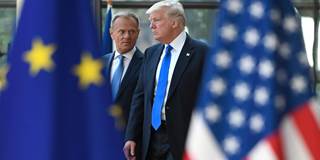
The Shrinking of the Presidency
US President Lyndon B. Johnson once said, “The presidency has made every man who occupied it, no matter how small, bigger than he was.” But Donald Trump is testing that maxim: by somehow managing to reduce the position to his size, the US presidency may have met its match.
MADRID – US President Lyndon B. Johnson once said, “The presidency has made every man who occupied it, no matter how small, bigger than he was.” But Donald Trump is testing that maxim. In Trump, who is somehow managing to reduce the position to his size, America’s presidency may have met its match.